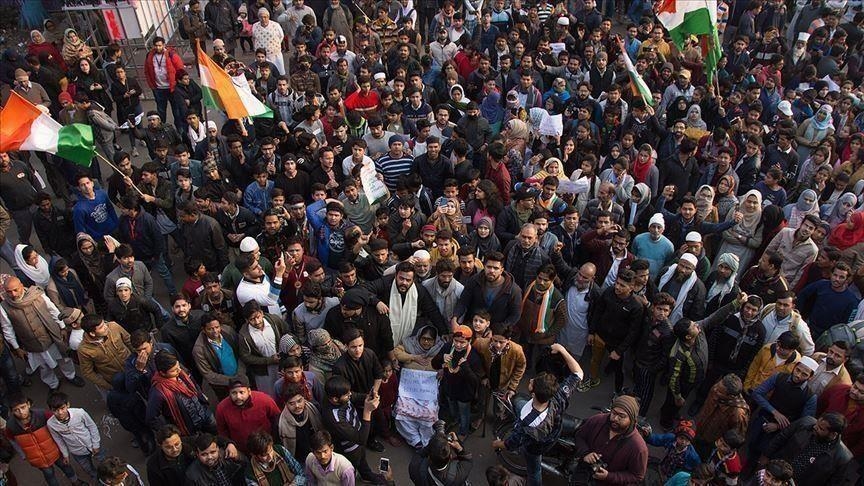‘Muslims in India need to empower themselves’
Indian author Ghazala Wahab says she wants to build 'bridge of conversation' between Muslims and others through her book

NEW DELHI
Muslims in India need to work towards empowering themselves as the government’s policies for the community have been “inadequate,” according to Indian journalist and prominent author Ghazala Wahab.
Wahab, who has come up with her latest book, Born a Muslim, in an exclusive interview with Anadolu Agency said Muslims need to step forward for the development of their community.
“Muslims need to work towards empowering themselves. Clearly, the government’s policies have been inadequate and will remain so in the foreseeable future,” she said in response to a question about the future of Indian Muslims. “Under these circumstances, wealthier and empowered Muslims must step forward to facilitate education and employment opportunities for those in the community who need it.”
She added that sound education will make them “competitive in the employment sector. Hopefully, that will help them integrate better in the mainstream.”
In her book, Wahab refers to her personal experiences as well as historical and political sources mentioning the origins of Islam in India as well as the current state of Muslims in the country, with their population of nearly 200 million.
Asked about what led her to write that “a Muslim boy in India will either be a wastrel or viewed as a rioter and be killed by the police,” the noted journalist said it was based on an interview.
“One of the women I interviewed for the book said her mother used to say that ‘a Muslim boy will either be a wastrel’…Perhaps her experience of communal violence led her to this conclusion,” she said.
Violence against Muslims and other minority communities has become increasingly frequent in India since the ruling Bharatiya Janata Party (BJP) led by Prime Minister Narendra Modi came to power in 2014.
In her book, Wahab, who is also the executive editor of the national security magazine FORCE, said many Muslims pretend to be Hindu and they change their names to give themselves another identity. She told Anadolu Agency that “all of this stems from insecurity and the threat a large number of Muslims perceive to their lives and livelihoods.”
“To a large extent, this is a recent phenomenon linked to the growth of communal politics…A certain section of Muslims find themselves at a disadvantage. Because of their poor educational and employment profile, they are vulnerable to targeted hatred and also violence,” Wahab said.
According to Wahab, her purpose in writing the book is two-fold.
“I want to address the Muslims who hold the letter of Islam as more sacred than its spirit. These people trust the ulema [scholars] more than their own instincts or common sense, leading to the creation of the fatwa cottage industry. I want to tell them that embracing modernity and mutual co-existence is not contradictory to their faith,” she said.
“I [also] want to address the non-Muslims. I want to tell them that not everything they think about Islam is correct, that they need to engage with Muslims to understand what the religion is. Through my book, I want to build a bridge of conversation between Muslims and others,” said the New Delhi-based author.
Wahab also maintains that there is a huge gap between the “perception and reality” of Muslims in the country.
“According to the government of India statistics, which I have quoted in the book, Muslims are among the most backward communities in India socially. Despite this reality, the widespread perception is that Muslims are an appeased minority. In addition to this, many people believe that the propaganda against Muslims -- of being radical, intolerant, extremist -- is based on facts when the truth is that it is based on complete falsehood,” she said.
“This huge gap between perception and reality is the one that we need to bridge.”
To a question about her experience as a Muslim working woman in India, Wahab said she "did not face any religion-specific issues."
"My experience of working as a journalist in India has been similar to the experiences of several women," she said.
In 2018, Wahab had come out with a detailed account as part of the #MeToo movement revealing how she was sexually assaulted by former Indian Minister MJ Akbar more than two decades ago when she was working at a newspaper where Akbar was the editor.
Anadolu Agency website contains only a portion of the news stories offered to subscribers in the AA News Broadcasting System (HAS), and in summarized form. Please contact us for subscription options.







